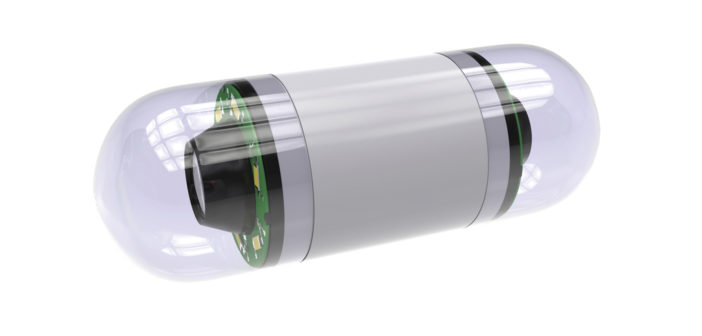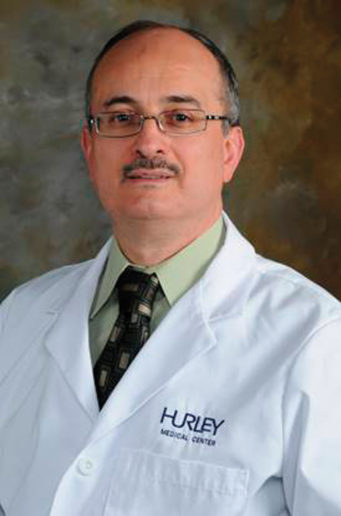It’s amazing what a teeny-tiny camera can do. PillCam Capsule Endoscopy is an innovative, non-invasive procedure to aid physicians in detecting gastrointestinal disorders and patterns. According to Ghanem Almounajed, MD, Chief, Gastroenterology Department at Hurley Medical Center, the PillCam is an easy-to-swallow, disposable capsule that contains a tiny, wireless camera. “It’s used for evaluation of small bowel diseases after finding normal results from upper endoscopy and colonoscopy,” explains the doctor. The procedure is also used to evaluate patients who have iron deficiency anemia or chronic diarrhea and pain from unknown causes. “Patients with symptoms suggestive of small bowel diseases benefit from this procedure,” says Dr. Almounajed. It is also used to detect Crohn’s disease, blood vessel malformations (AVMs), small bowel polyps and small bowel cancer.
How, exactly, does PillCam work? According to Dr. Almounajed, after the patient swallows the capsule, they are given instructions by the staff or the nurse about their diet during the process, and they go home with a device that records the camera’s video. The capsule passes through the digestive tract, transmitting more than 50,000 images to a data-recording device worn by the patient for an eight-hour period. After eight hours, the patient returns the recorder, and the small bowel images from the PillCam are then downloaded to a computer for the physician’s review and diagnosis. “Usually, the capsule will travel through the stomach to the small bowel and then to the colon, and then it is eliminated,” explains the doctor. “There is no need to retrieve the capsule.”
“It is the best diagnostic tool for the long, small bowel
that was difficult to see accurately in the past.”
– Ghanem Almounajed, MD
Hurley Medical Center began using the PillCam capsule in 2013. Performed approximately ten times per month, the procedure is very low-risk, according to Dr. Almounajed. “It’s easy to swallow the capsule, there is no need for sedation, and little preparation is required,” he adds. “It is the best diagnostic tool for the long, small bowel that was difficult to see accurately in the past. This is a great medical advancement.”









